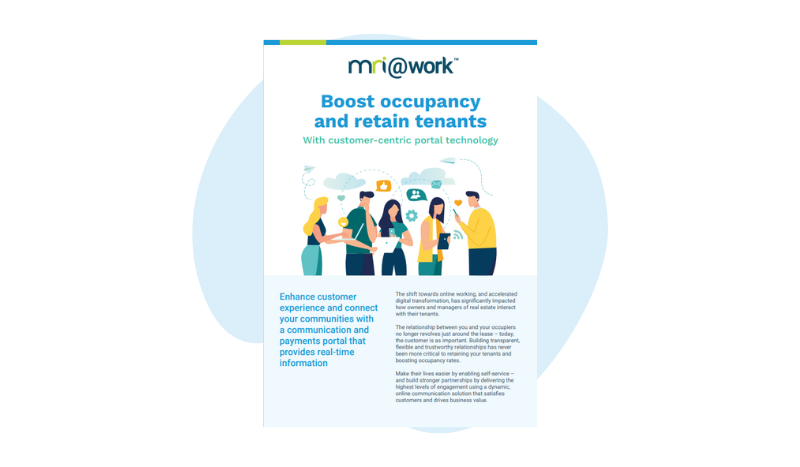Why Accounting Reforms Should Be a Catalyst for IT Renewal in the Real Estate Function
New accounting rules focusing on leases will make tough demands of real estate – make sure your property management technology is up to the job.
It might be wise for real estate professionals to think of 1 January 2019 as D-Day for their departments. This is the date on which the International Accounting Standards Board’s new IFRS 16 standard becomes effective; thereafter, all publicly-listed companies will be required to ensure the value of their leases, including their property leases, are accounted for on their balance sheets and other financial statements.
The reforms will apply in the US too, under the Financial Accounting Standards Board’s Topic 842 regulation, so many companies will be dealing with two separate major new accounting standards – albeit similar – from 2019 onwards. Real estate will find itself front and centre of the considerable effort required to transition to the new rulebook – and to manage its impacts on an ongoing basis thereafter.
The IASB itself concedes there will be substantial costs for companies making the switch, as well as challenges and difficulties managing the impacts, but it believes the benefits of greater visibility of businesses’ leasing obligations more than justify the downsides. In other words, businesses now have no choice but to get on with the job of preparing for IFRS 16 and Topic 842 – and find the most efficient and effective way of doing so.
For real estate functions, it will be crucial to have property management technology that is fit for purpose. Indeed, the imperative is so strong that the reforms should prompt real estate to modernise their IT infrastructure, replacing legacy systems that will not deliver what is needed. Accountancy advisers argue that assessing the capabilities of existing technology is one of the first steps businesses will need to take as they plan for IFRS 16. And given that the new reforms make considerable demands on the finance function – which will require collaboration and support from real estate – now may be the perfect time to push for the resources needed for renewal.
Your property management technology needs to be capable of delivering a range of outputs. For transition, it should be able to organise and access all relevant property leases; it should also be able to extract the key data required from those leases for IFRS 16 purposes; and it should be able to deliver that data to finance in a format that can be easily integrated by its IT systems. In addition, on an ongoing basis, property management technology will need to be able to model the impact of new leases on the balance sheet, to inform real estate and finance about the implications of new property transactions and how best to structure them.
Systems that don’t provide accurate tracking and monitoring of key data will put your business at a real disadvantage, requiring resource-intensive manual interventions to make corrections and add missing information. In turn, that will inhibit the real estate function’s capacity to offer strategic advice on leasing in the context of the new standards, preventing it capitalising on an opportunity to add significant value.
Practically speaking, this is real estate’s opportunity to replace cumbersome on-site server based applications with a web-based alternative that provides the required functionality on day one and can be upgraded through automatic upgrades as new modules are required or new tools become available. For example, artificial intelligence and deep learning technologies may provide a real head start for real estate functions working to comply with the new standards.
Working in tandem with the finance department’s enterprise resource planning systems, modern property management technology will generate “one version of the truth” across the company – and enable real estate to meet its responsibilities and to add value as the new standards become effective. That will be crucial as real estate seeks to work in partnership with finance to respond to and manage these reforms.
Takeaways:
- New accounting standards that come into force in 2019 will require companies to record the value of real estate leases on their balance sheets
- Property management technology that cannot cope with the new standards will force companies to make time-consuming and expensive manual interventions
- To respond both tactically and strategically to the new rules on leases, real estate will need to move away from inflexible and limited legacy technologies
MRI Engage for @Work Brochure
Enhance customer experience and connect your communities with a communication and payments portal that provides real-time information The shift towards online working, and accelerated digital transformation, has significantly impacted how owners and …


